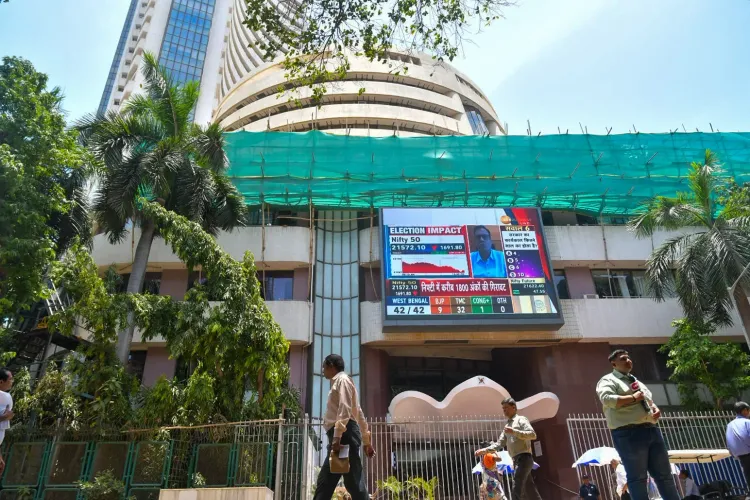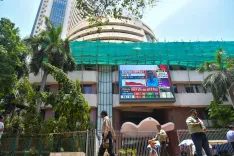How Did the Indian Stock Market Open in Green Amid Geopolitical Tensions?

Synopsis
Key Takeaways
- Indian stock market opens positively.
- Resilience amid geopolitical tensions.
- Sector gains: IT, financials, pharma.
- Importance of cautious trading strategies.
- Long-term investment opportunities in attractive stocks.
Mumbai, June 16 (NationPress) The Indian equity markets commenced the week on a positive note on Monday, defying escalating Mideast tensions without any visible signs of panic during the initial trades.
At 9:21 am, the Sensex surged by 265.05 points, translating to 0.33 percent, reaching 81,396.52, while the Nifty increased by 93.40 points or 0.38 percent, standing at 24,812.
There was considerable buying activity in both the midcap and smallcap sectors. The Nifty midcap 100 index rose by 65.45 points, or 0.11 percent, to 58,292.50, while the Nifty smallcap 100 index climbed by 17.15 points, or 0.09 percent, reaching 18,391.95.
Market analysts suggest that the uncertainty linked to the Israel-Iran conflict has prompted a risk-off sentiment globally.
“Safe haven buying is maintaining strong gold prices, although the dollar remains weak. Interestingly, there is a notable absence of panic among equity investors,” stated VK Vijayakumar, Chief Investment Strategist at Geojit Investments Limited.
The markets may face serious repercussions only if Iran decides to close the Strait of Hormuz, which could lead to a significant surge in crude prices. However, this scenario currently appears to have a low probability, he added.
In terms of sector performance, IT, financial services, pharmaceuticals, FMCG, metals, energy, infrastructure, and PSE sectors were the primary gainers, while automobiles, PSU banks, metals, and real estate faced losses.
Within the Sensex group, significant gainers included Power Grid, UltraTech Cement, L&T, HCL Tech, Asian Paints, Bharti Airtel, TCS, Infosys, NTPC, and Tech Mahindra. Conversely, major losers were Tata Motors, Axis Bank, Kotak Mahindra Bank, Sun Pharma, M&M, SBI, and Maruti Suzuki.
Given the current environment marked by heightened volatility and uncertainty, traders are urged to adopt a cautious stance—especially regarding leveraged positions.
“Engaging in partial profit-booking during rallies and utilizing tight trailing stop-losses is advisable,” recommended Aakash Shah from Choice Broking.
Asian markets displayed mixed performance, with Tokyo, Shanghai, Seoul, and Jakarta in the green, while Bangkok and Hong Kong were in the red. The US market concluded in the negative on Friday.
From an institutional standpoint, foreign institutional investors (FIIs) were net sellers on June 13, shedding equities worth Rs 1,263 crore. In contrast, domestic institutional investors (DIIs) remained supportive, acquiring equities valued at Rs 3,041 crore.
The market landscape characterized by sustained retail buying and inflows into mutual funds suggests that valuations will remain elevated for an extended period. Hence, long-term investors might consider leveraging this risk-off environment to acquire relatively attractively valued stocks in the financial sector, according to analysts.









